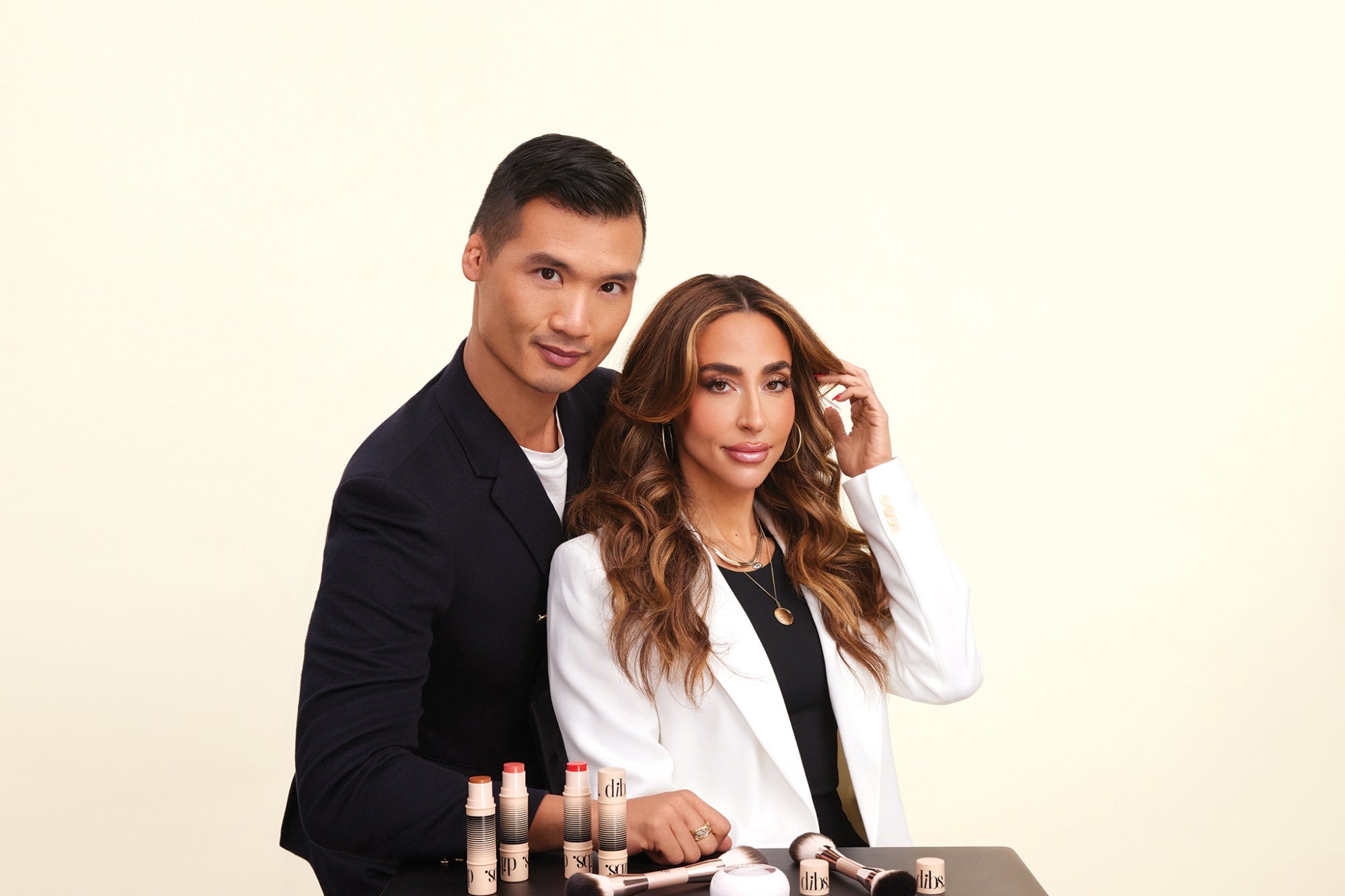When a Beauty Influencer and a Wall Street Lawyer Started a Brand Together, a Weird Thing Happened The founders of DIBS learned how to take each other seriously.
By Jeff Lee
This story appears in the March 2023 issue of BIZ Experiences. Subscribe »

I'm not used to failing — but a few years ago in Miami, I was gripping my blanket in a hotel, staring at the ceiling, and wondering if a major decision I'd made was blowing up in my face.
Until then, I was used to hitting A-plus. I'd gotten an MBA from Stanford and a J.D. from Yale, worked five years on Wall Street as a corporate attorney, and was president of A-Rod's production company. Then I agreed to cofound a cosmetics brand called DIBS with the influencer Courtney Shields, thinking I'd have a lot to teach her about business.
Instead, I learned that Courtney had a lot to teach me.
In Miami, for example? I was there to sell one of our new products at the glitzy Miami Swim Week. I'd made a huge bet on it and arranged a campaign by the best marketing brains I knew. But we fell on our asses. Nothing moved. When I reported this to Courtney, she calmly replied, "Jeff, I got this." Even so, I lay awake all night, sweating it out. Well, she'd gone out to her driveway, strapped herself into her car, and posted three TikToks that drove more than 4.7 million total views. We sold out immediately.
Related: 4 Ways to Harness Your Leadership Brand and Transform Your Workplace Culture
Virality alone doesn't solve a business issue, of course, but Courtney's instincts sure do. I'm driven by the team's performance. By contrast, she's attuned to their potential, and how you motivate people to excel.
For example, I'm very direct. There's no bullshit. But one time, after I told our staff that someone's work was unacceptable, Courtney pulled me aside. "You should have taken that conversation offline," she said. "Even though you didn't name the person, everyone knew who it was. And what was the learning for the group?" She had a point.
Going a step further, she told me she wants me to intentionally call out people for what they've done well — and do it every month on Slack. My first reaction was, "I worked 120 hours a week at Sullivan & Cromwell during busy times, and we never got any acknowledgment." But I did it. And you know what? It made everyone feel great, and refocused my leadership. I was used to looking for people's mistakes, but now I keep tabs on their successes.
This practice also helps me have a bigger vision for the company. In the past, I always looked to accumulate responsibilities and hoard clients. Why? As the son of Taiwanese immigrants, I was trying so hard to prove myself. But Courtney made me realize how shortsighted that is. Even as the face of the brand, she lets people step into her position. "I can't plug DIBS alone," she'll say. It made me realize: For us to grow, others need to take over some of my duties, too — and now that I'm focusing on people's successes, I can better identify those future leaders.
Related: What Is Transactional Leadership and How Does It Work?
When I do have to deliver negative feedback, I focus on the positive. I don't believe in the "shit sandwich" approach, but I've come around to the "open-faced sandwich" — leading with the tough part of the conversation, then pivoting to, "How can you grow from here?" And the number-one principle in our employee handbook is: We do not pay people to agree with us.
The business grossed $4.5 million in a little over a year. Last quarter we achieved continuous profitability. Those are successes. But my lasting triumph is what I've learned about humility. When I was in that Miami hotel room, my mindset was: Just show competence; show that it's handled. It's very much a "guy thing," and for what it's worth, I'm the only guy on our full-time team. But the truth is, sometimes you don't have all the answers. If you're a real leader, you know when to ask for help.










